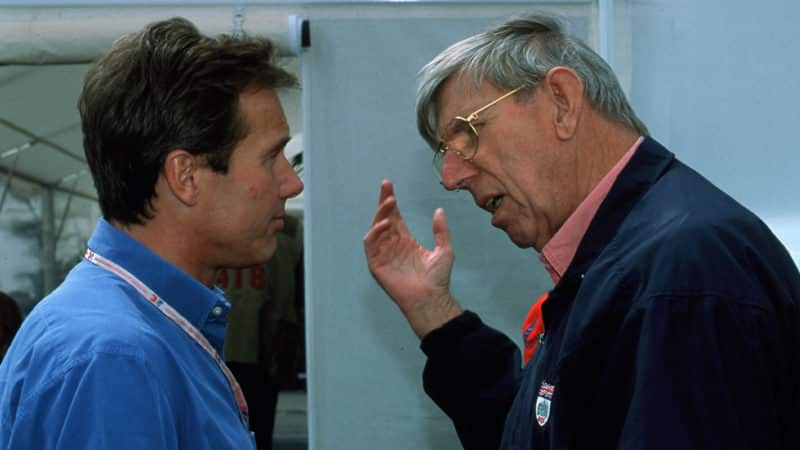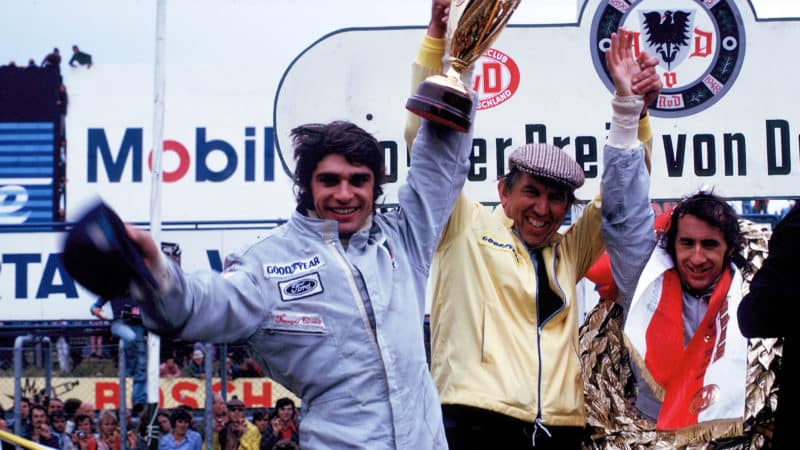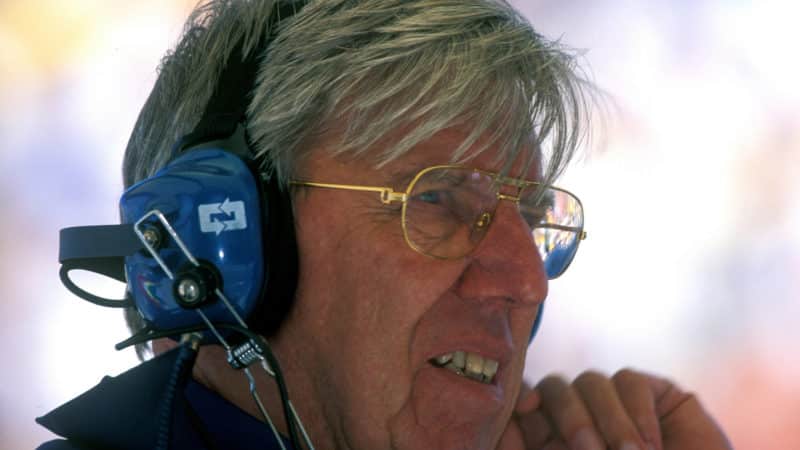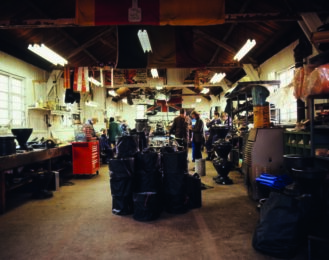So it was that, when I asked Ken if I could interview him on 12 April 1998, the date of that year’s Argentine Grand Prix, he agreed. “Yes, come and watch the race with me at home,” he replied.
He answered the door with a grin and a guffaw, then said: “Norah’s in hospital, nothing serious, so you’re very honoured: you can have her chair.” He then disappeared, quickly returning with a tray bearing Earl Grey in two bone china teacups, two cans of Sainsbury’s Traditional Ginger Beer, and two hot cross buns. “It’s Easter Sunday so you should give him hot cross buns, Norah told me, so I have,” he said, grinning and guffawing again.
You may remember that the race was won by Michael Schumacher (Ferrari), smartly executing a two-stop strategy to beat Mika Häkkinen, whose McLaren team had elected to stop him only once. While we were watching, Ken made no secret of the fact that he was keen to see the McLarens beat the Ferraris. “I like to see the British constructors doing well. It’s nice that it’s still true that, to win in Formula 1, you simply can’t be based outside the UK. Even Ferrari can’t do it – not even with the best driver in the world and the biggest budget that any Formula 1 team has ever had.”

Pollock and Tyrrell in 1998: driver disagreement brought an end to Ken’s 30 year uninterrupted stint in the paddock
DPPI
I chose my moment carefully, but eventually I felt I had to acknowledge the elephant in the room. “So, Ken, what does it feel like to be watching Formula 1 from Surrey, via Murray Walker and Martin Brundle, rather than from the pitwall in Argentina?”
Ken looked choked rather than annoyed, and there was no froth job. “Terrible [long pause]… I’d not missed a single race in 30 years [even longer pause]… so, yes, not being a part of things is very hard.” The race came to an end, and after one more cup of Earl Grey I was on my way. Ken stayed away from the Formula 1 scene by and large after that, but for a while he was President of the BRDC, resigning from the position shortly after he had been diagnosed with pancreatic cancer. He died in August 2001. His beloved Norah followed in May 2002.
And what became of his once all-conquering Tyrrell Racing, which had won three drivers’ world championships with Jackie Stewart (1969, 1971 and 1973) and had notched up 33 grand prix wins, one of them brilliantly and uniquely with a six-wheeled car (Jody Scheckter, Anderstorp, 1976)? Well, under the stewardship of Pollock it became BAR, short for British American Racing; it was bought by Honda; it briefly won fairy-tale world championship glory as Brawn; and since 2010 it has become the racing powerhouse that is Mercedes-AMG Petronas Formula 1 Team. Cheers, Uncle Ken, you can be well proud of that.

A Tyrrell 1-2 in Germany ’73, as Stewart headed Cevert at the Nürburgring
DPPI



